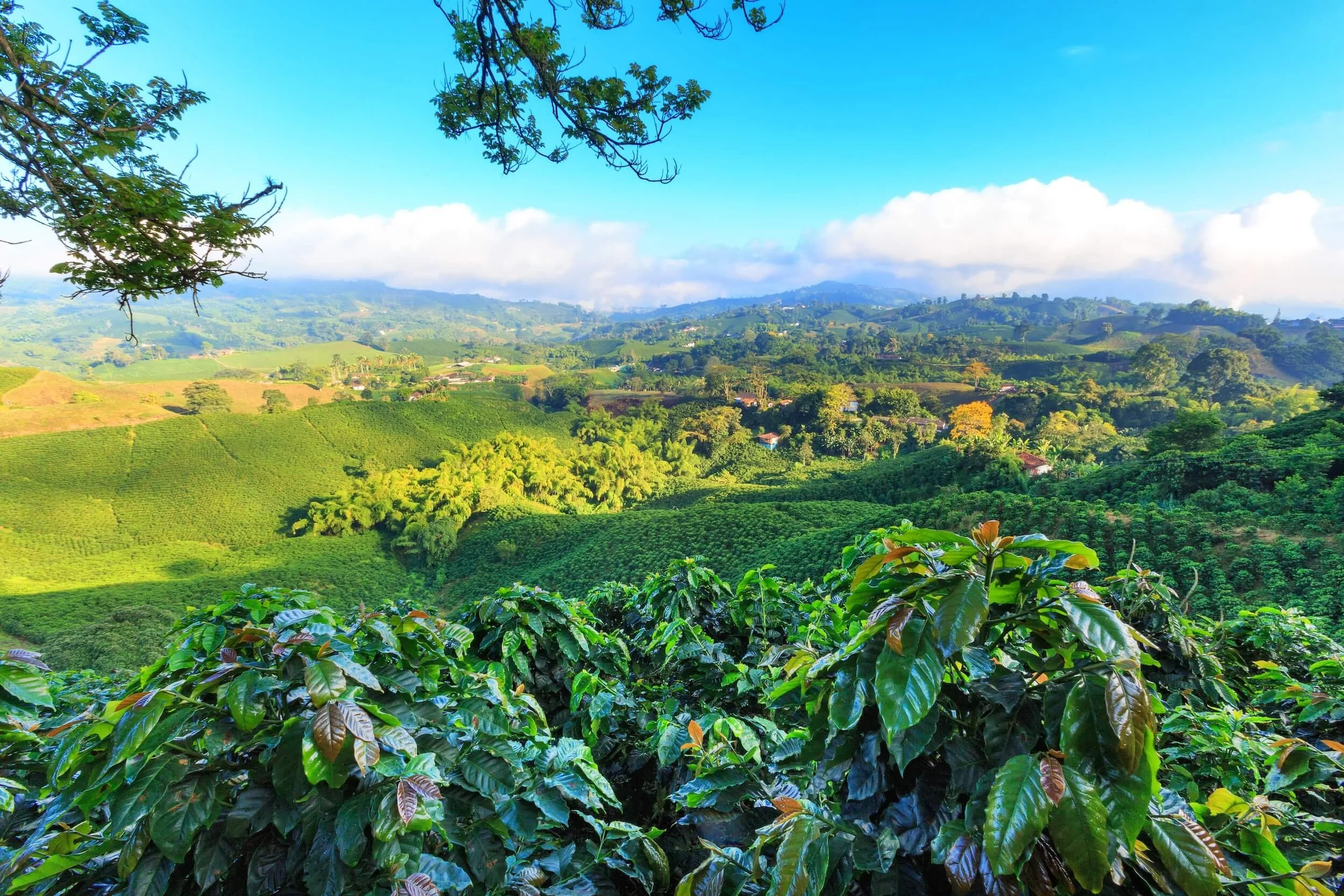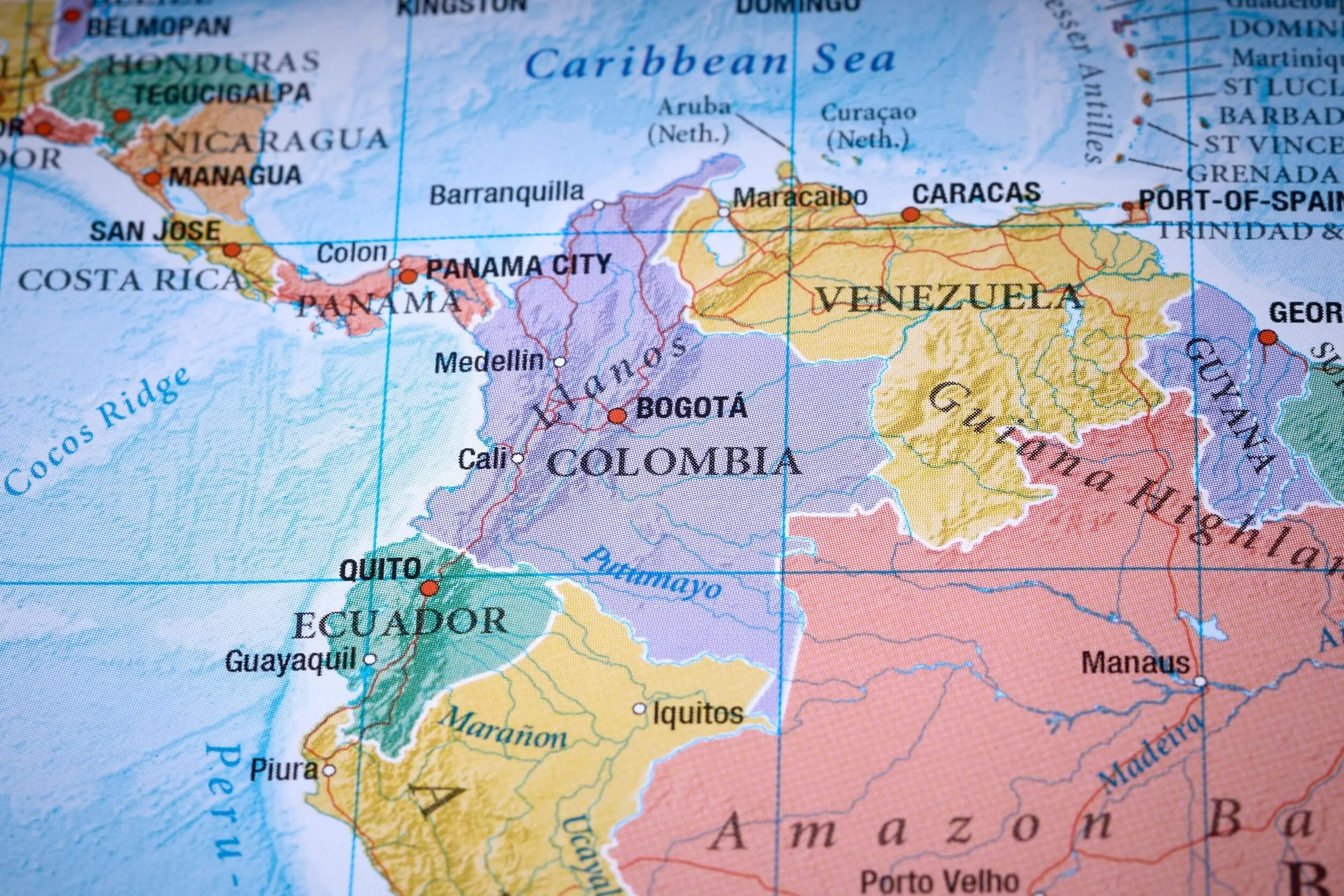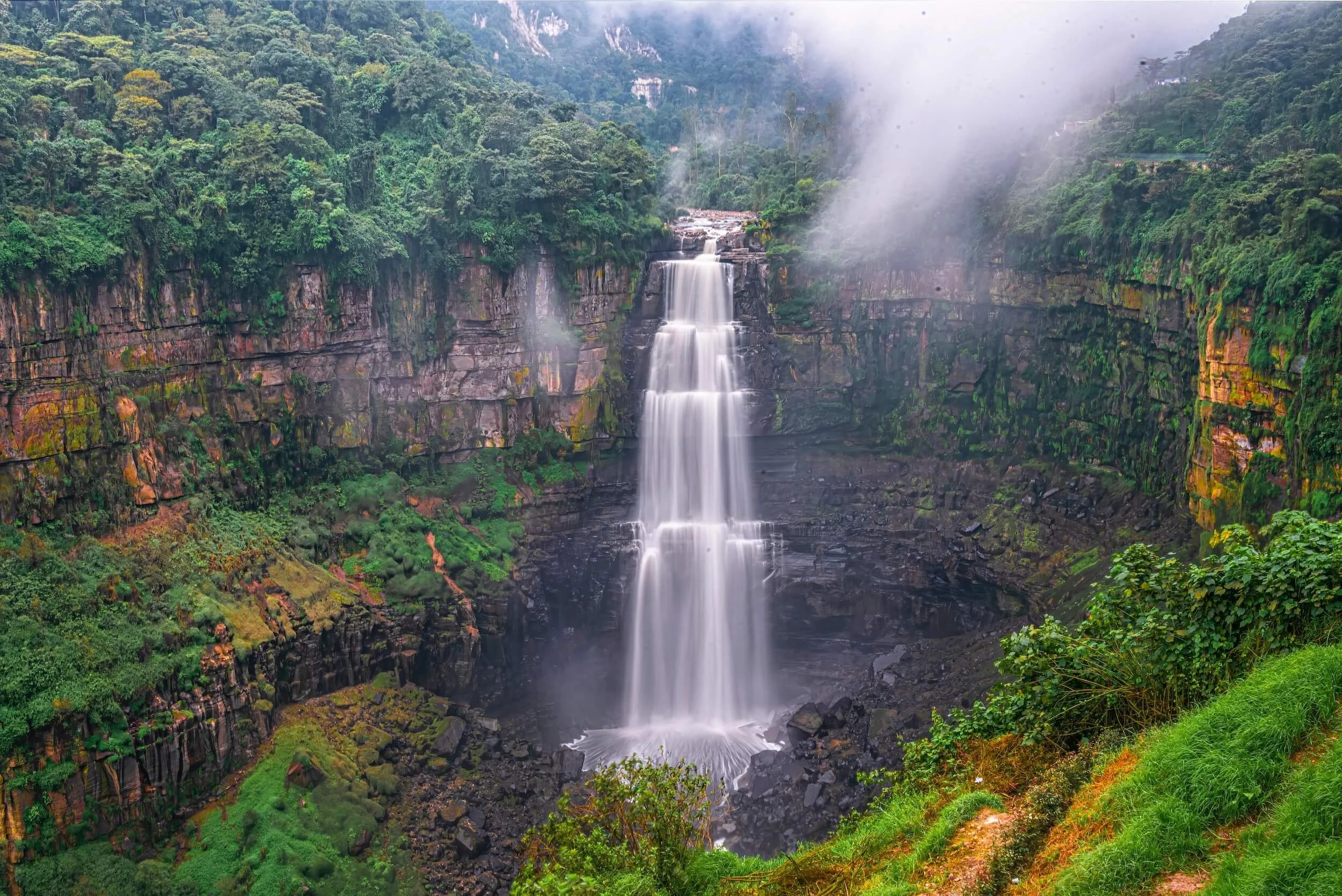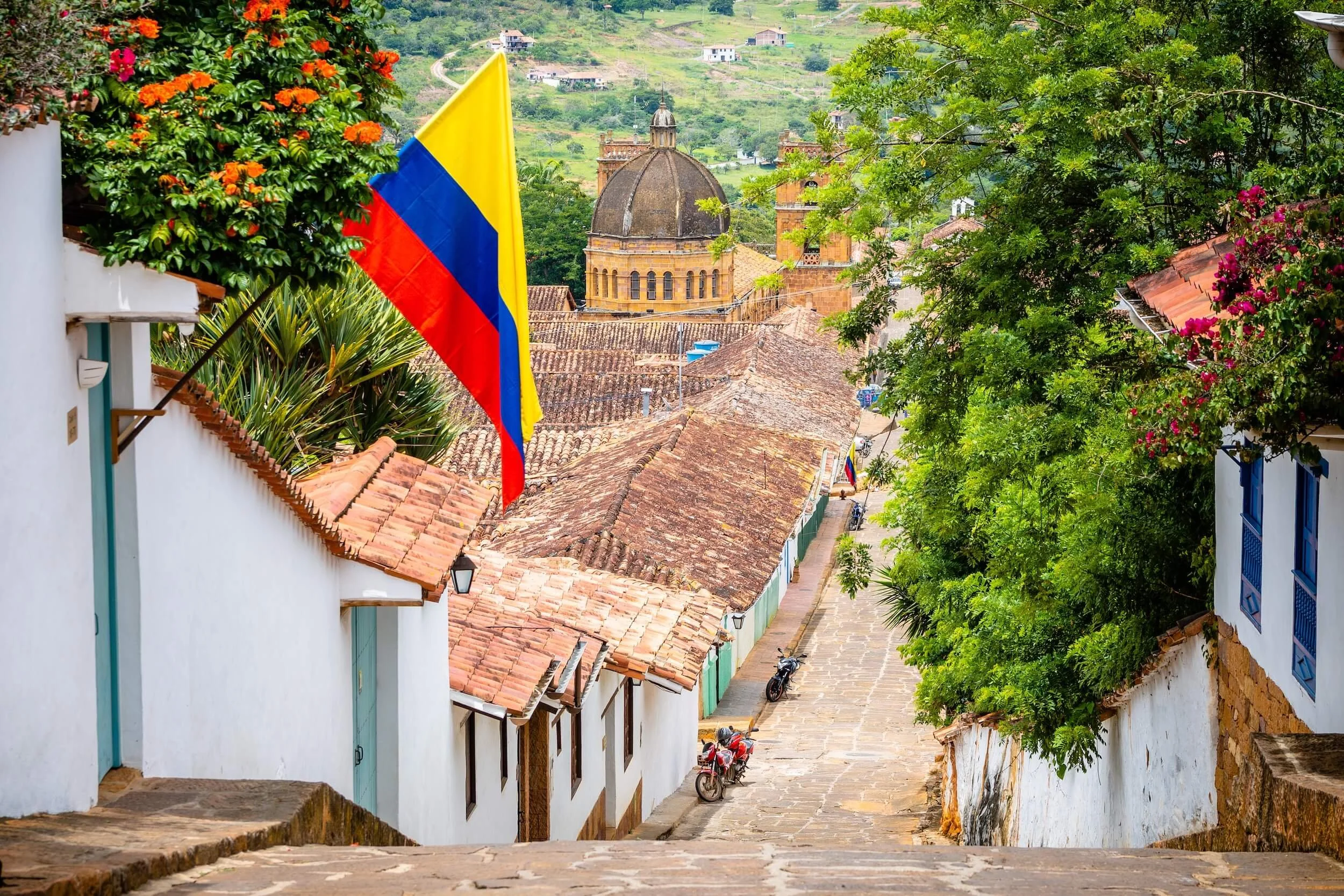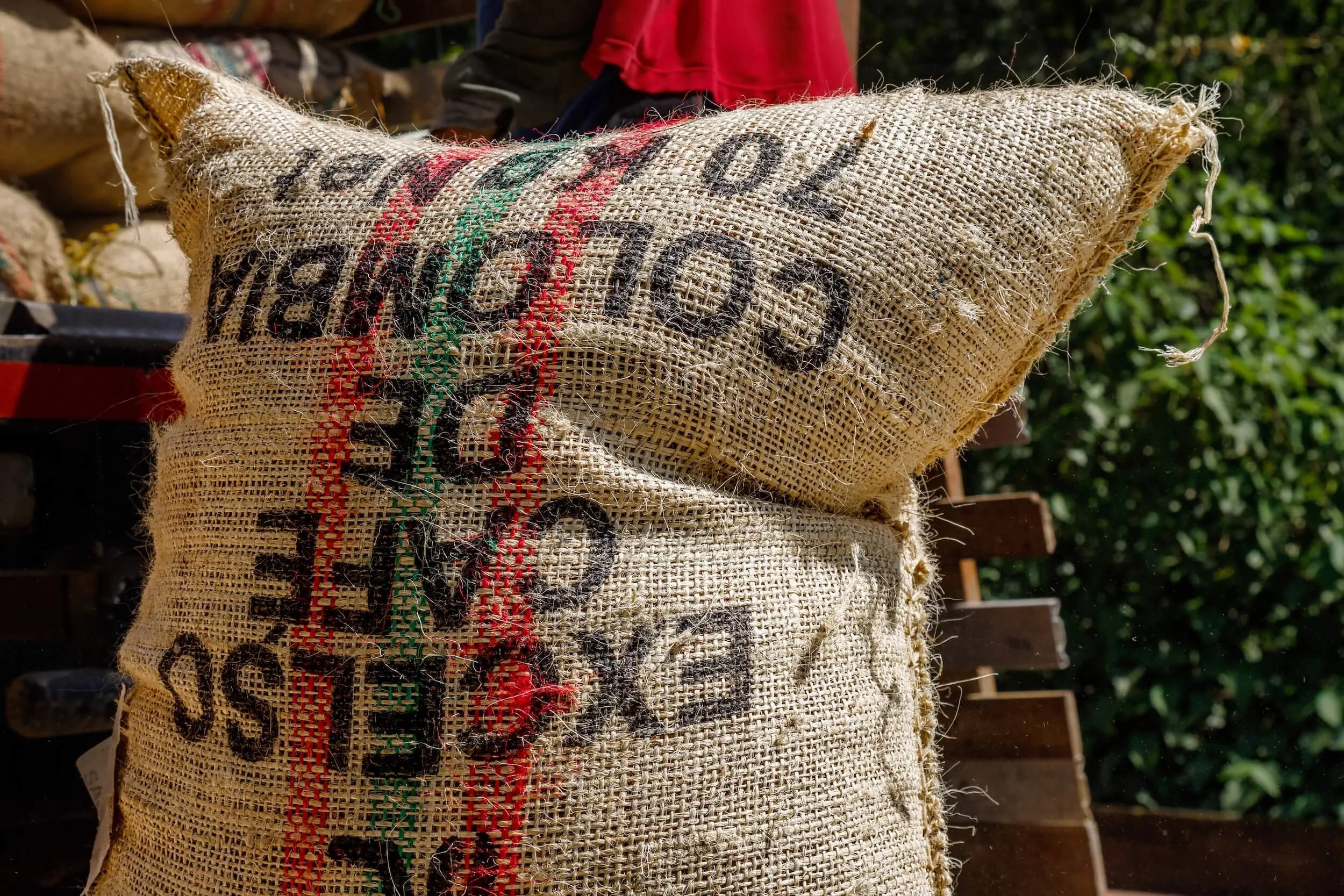Colombian Coffee: The Story Behind the World’s Most Famous Bean
Learn how Colombian coffee went from a local treasure to an International legend.
There’s coffee — and then there’s Colombian coffee.
These world-renowned beans are a staple in the global coffee community—but why? How did this once-isolated, mountainous country on the northern edge of South America become a global powerhouse in coffee?
Well, behind Colombian coffee’s unmistakable flavor lies an incredible story of biodiversity, pride, and an epic marketing campaign.
Now, you can’t be a legit fair trade organic coffee brand without having authentic Colombian coffee in your shop — and here at Aethereal Coffee, our Colombian brew is a customer favorite.
We get it straight from small farms in Planadas, in the foothills of the Andes mountain range; it’s organic, it’s fair trade, and the proceeds go back to help the community thrive.
Oh, and it’s good.
Like, really, really good. That’s why we wrote this article: to brag about our air-roasted beans and tell you how they got to where they are today.
Ready for some storytelling magic? Grab your coffee and let’s go.
What is Colombian Coffee?
Colombian coffee is known for its bright, juicy acidity and sweet, smooth balance with caramel and chocolatey undertones.
Right?!?!?!?
With such an exceptional flavor profile, it’s easy to see why Colombia has emerged as one of the global leaders in coffee production, yielding more than 11 million bags annually and ranking third worldwide. [1]
For the record, Brazil comes in at number one, and Vietnam at number two.
Coffee actually isn’t native to Colombia; it’s native only to Ethiopia. Legend has it that Jesuit missionaries brought the coffee plant to Colombia in the 1700s, a plant known as Coffee Arabica.
Coffee Arabica is a species of plant and the most prized variety of coffee, known for its smooth, sweet flavor and rich aroma.
It’s also notoriously difficult to grow.
Arabica plants need steady temperatures, rich soil, and high altitudes—conditions found in only a few places worldwide.
Colombia is one of them.
Tequendama Falls near Bogota, Colombia
Why Coffee from Colombia Is Special
To truly appreciate the Colombian coffee in your cup, you need to understand how magical the country of Colombia is.
This South American country, located on the shores of the Caribbean Sea, is one of only seventeen “megadiverse” countries, with the highest biodiversity per square mile in the world.
Get this: Colombia leads the world in bird and orchid species and ranks second in plants, butterflies, freshwater fish, and amphibians! [2]
With all that action, it’s no surprise Arabica coffee plants thrive there, too. Here’s are 5 reasons why:
Geography & Biodiversity: Colombia reaches from the snow-capped Andes to the lush Amazon rainforest and the warm shores of the Caribbean Sea — a rare blend of landscapes that creates some of the world’s most ideal growing conditions for Arabica coffee.
Altitude: Most Colombian coffee is grown high in the Andes, between 3,000 and 6,000 feet above sea level, where cool, steady mountain air slows the ripening of the cherries — resulting in sweeter flavor, brighter acidity, and naturally aromatic beans.
Volcanic Soil: Much of Colombia’s coffee belt sits on ancient volcanic rock. Over centuries, mineral-rich ash packed with potassium, magnesium, and phosphorus has created fertile soil that helps coffee plants grow strong and produce deeply flavorful beans.
Microclimates: Colombia’s mix of mountains, valleys, and rainforest ecosystems forms hundreds of microclimates that keep growing conditions stable for Arabica, while adding subtle regional flavor differences from one farm (or region) to the next.
Freshwater Abundance: With generous Amazonian rainfall and thousands of rivers flowing through the country, Colombia’s rich water resources nourish crops naturally and support more sustainable coffee cultivation.
These unique geographic and climatic conditions are the reason organic Colombian coffee is so highly prized around the world.
But there’s another reason why Colombian coffee is so famous, and it has to do with good old-fashioned pride.
Street view of Barichara Colonial Town in Colombia
Colombian Coffee Rises to Fame
As coffee cultivation began to spread throughout Colombia, so did a sense of national identity.
Colombia’s rugged terrain prevented any kind of large-scale farming or giant estates, but slowly and surely, small-scale farmers began to build the entire industry.
Many families tended their plants by hand, carefully picking only the ripest cherries and carrying them down the mountains themselves. The organic fair trade farms we work with here at Aethereal Coffee still do it the same way!
These Colombian farmers wore the hardship as a badge of honor, and as more “fincas” began exporting their harvest, the world began to take notice.
Colombia made headlines when it gained independence from Spain in 1819 and needed a new economic driver. Around the same time, coffee was becoming a staple in the United States and Europe, often replacing traditional breakfast drinks — including alcohol.
In other words, Colombia’s mountain-grown Arabica arrived at exactly the right moment, powered by a nation of growers who poured pride and craftsmanship into every harvest.
The stage was set for wild success, and in 1927, Colombian coffee farmers gained a champion: the National Federation of Coffee Growers of Colombia (FNC). Its mission was simple but transformative — protect small farms, elevate quality, and ensure growers got paid fairly.
The FNC united thousands of growers into a national brand based on consistency, community, pride and an face that was about to take over the world.
Colombian Coffee and Juan Valdez
Colombia had the quality, the reputation, and the momentum. All it needed now was a frontman.
In 1958, the FNC introduced Juan Valdez, the fictional Colombian coffee farmer, and his loyal mule, Conchita.
Juan was portrayed by Carlos Sánchez, a Colombian actor who actually did have real experience in coffee farming!
Juan embodied what Colombian coffee was all about — handcrafted, small-grown batches packed down the mountain by a mule and a humble, mustachioed farmer with a poncho over his shoulder who couldn’t be happier to give you a cup of the good stuff.
The image of Juan Valdez on American TV and in print ads connected Colombian farmers to a global audience.
In 2003, “Juan Valdez” even made a cameo in the Hollywood comedy Bruce Almighty, a sign of just how iconic the character had become worldwide.
The Colombian Coffee seal introduced by the FNC
Building on Juan Valdez’s popularity, the FNC launched the “100% Colombian Coffee” seal to certify authentic beans, starring Juan in illustrated form.
For the first time, shoppers could instantly spot real Colombian coffee on a shelf — setting it apart from generic blends.
The impact was staggering. By the 1990s, the Juan Valdez campaign had created an estimated $1.6 billion in extra earnings for Colombian coffee.
A 2001 New York Times article says that “In the world of marketing, Juan Valdez is considered one of the most successful pitchmen ever — on par with Mr. Whipple and the Pillsbury Doughboy.” And, “Awareness of Juan Valdez in the United States stood at 60 percent last year (2000), with logo identification of Cafe de Colombia reaching 85 percent, ahead of Nike and Michelin.” [3]
Yep, at one point, more Americans recognized Juan Valdez than Nike.
Today, Juan Valdez lives on through 300+ cafés in Colombia and 100+ around the world (and of course, on YouTube!), carrying the legacy of Colombian coffee into a new era.
Organic Fair Trade Coffee from Colombia Starts Here
As coffee roasters who buy Colombian beans, we know that Colombian coffee still carries the pride of generations who have hand-picked, washed, and roasted their harvest with extraordinary care.
Ready to try for yourself? You’re in the right place!
Colombian beans from Aethereal Coffee come directly from the Association of Organic Producers in Planadas, Colombia, ensuring authentic origin for your cup, superior taste, and direct support for local farmers.
The beans are also certified fair trade and organic, so when you buy from us, you enjoy premium flavor grown with ethical and sustainable methods that benefit both you and coffee-growing communities.
As for the flavor, it’s well…Colombian.
Like we said, there’s coffee… and then there’s Colombian coffee.


